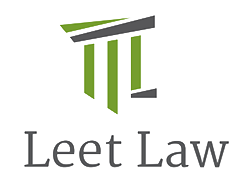ADA Compliance Attorneys in San Jose, California
Federal lawsuits based on violations of the terms of the Americans with Disabilities Act (ADA) in the California private sector are up 26.9 percent from 2019 to 2021. Through the first six months of 2021, California saw 3,340 ADA lawsuits filed on the federal law, the most in the nation. That is just the number for federal lawsuits. The Golden State itself was home to 6,055 ADA lawsuits filed in 2020, up 21 percent from the previous year.
If you own or operate a business in or around San Jose, California, or in the San Francisco Bay Area, and you want to ensure compliance with the ADA - or worse, if you've had an ADA complaint or lawsuit filed against you - contact Leet Law. For more than a decade, we have provided exceptional counsel and representation to businesses facing a variety of legal and compliance issues.
What Is the ADA?
The Americans with Disabilities Act of 1990 covers both private and state and local government employers. Employers are subject to ADA compliance if they have 15 or more employees. State and local governments are covered no matter the number of employees. Federal government employees are covered under the Rehabilitation Act of 1973.
The ADA protects against discrimination in employment based on a job applicant's or employee's qualifying disability. The act covers every aspect of employment: recruiting, hiring, firing, compensating, promoting, assigning jobs, training, providing leave and benefits, and all other employment activities.
The ADA describes a disability as "a physical or mental impairment that substantially limits a major life activity." Major life activities include hearing, seeing, speaking, breathing, performing manual tasks, walking, caring for oneself, and learning or working. Note the word "substantially." A minor impairment, or one that is temporary such as a broken arm, would likely not be considered substantial. The law also protects those who are "regarded" as being disabled and those who are "associated with" disabled individuals.
The ADA recognizes that a disabled person must be able "to perform the essential functions of the job with or without a reasonable accommodation." In other words, employers can hire the most qualified individual for a position based on experience, education, skill level, and professional licensing requirements. The ADA is not an affirmative action program. It merely makes it illegal to discriminate against someone because of a disability.
Reasonable Accommodations
A reasonable accommodation is a workplace physical, procedural, technical, or task-related modification that breaks down "barriers" that may force a disabled person to find it harder to perform the "essential functions" of their job.
Generally, the disabled applicant or employee must request a reasonable accommodation, and the employer is expected to provide one unless it causes an "undue hardship." An undue hardship could be one that is too costly, would result in physical modifications of the workspace that would cause problems for others, or would result in other problems affecting the operation of the business.
Reasonable accommodations are covered under Title I of the ADA, and compliance is monitored and enforced by the U.S. Equal Employment Opportunity Commission (EEOC).
ADA Accessibility Requirements
Though it does not directly enforce the ADA, the U.S. Department of Labor (DOL) offers guidelines on providing accessibility for the disabled that include these considerations, among others:
- Are parking spaces close to the entrance of the structure?
- Is the pathway from the parking lot free of obstacles such as steps or level changes?
- Are ramps appropriately graded and equipped with handrails?
- Are doors at least 36 inches wide to accommodate wheelchairs? Are they easy to open?
- Are restrooms, water fountains, and other commons facilities accessible to the disabled?
Website Compliance
For "places of public accommodation," the ADA also requires that the business's web presence be accessible to the disabled. Web content should be accessible to blind users, deaf users, and those who must navigate by voice, screen readers, or assistive technologies.
Practical solutions for website compliance include, among others:
- Voice navigation for each page
- Video captions or transcripts
- Alternative text for photographs
If you don't have disability accommodations on your website, you could be in violation of the Americans with Disabilities Act.
ADA Compliance Attorneys in San Jose, California
Leet Law stands ready to assist you with any ADA issue or challenge you face. With the number of ADA lawsuits on the rise, especially in California, it is time to make sure you're in compliance in all regards, including website accessibility. If your business is located in San Jose, in the neighboring cities of San Francisco, Oakland, or Palo Alto, or anywhere in the Greater Bay Area, contact Leet Law today with your ADA concerns and legal issues.
